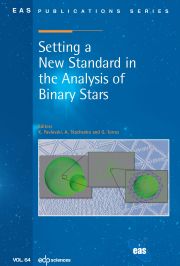No CrossRef data available.
Article contents
Outreach as seen by the Spanish professional astronomers: a survey of beliefs, attitudes, and activities
Published online by Cambridge University Press: 14 January 2006
Abstract
A survey of outreach related beliefs, attitudes, and activities of the Spanish professional astronomers is presented. More than one hundred scientists answered an ad-hoc drawn up questionnaire, whose results have been analysed statistically. This feedback form is an improved version of that used in a previous research carried out by the authors with a sample of members of the Instituto de Astrofísica de Canarias (Díaz Vilela & Rodríguez Hidalgo 2005). Some of the studied items are the actual time and effort devoted to outreach by a researcher, the role of outreach within his work, the valuation of outreach activities in his curriculum, socially, or economically, the opinion about who should have the responsibility of organising and performing popularisation tasks, etc. Three kinds of studies have been performed: the descriptive one is based on the frequencies and means of variables; a Principal Component Analysis was applied to get a shorter number of belief-attitude dimensions; and an inferential one, derived from a Multiple Regression Analysis which provides a reliable description of the beliefs-attitudes scale grouping outreach related beliefs into 6 components, 3 of them more significant. A simple regression allows us to predict about a 50% of the variance of the outreach practices.
- Type
- Research Article
- Information
- Copyright
- © EAS, EDP Sciences, 2005




